
An Internet sanctuary for young Chinese people in Tokyo.
When our Japanese reporter Kamezawa Ikuna traveled to Shanghai she visited a Chinese Internet cafe, and it was unlike any cafe in Japan. Pets were allowed, the staff themselves were playing games, and what astonished her the most was that every Chinese customer was shouting at the computer screens in front of them.
Unaccustomed to such loud environments, she quickly left, though later she regretted getting scared so quickly and not staying a little longer.
So when she heard there was a similar cafe located in Shin Okubo, Tokyo, the reporter knew she had to give it a shot again. Despite Shin Okubo being labeled as Korea Town, the district has slowly become more of a multicultural hub in recent years.
▼ The region has a strong Chinese presence.
▼ Many Chinese goods and products not found anywhere else can be procured here.
▼ Customers and staff are mostly Chinese.
▼ Dumplings can be found everywhere.
▼ Heading east from Shin Okubo Station, she spotted many young Japanese women in queues to get their hands on some Korean goods.
▼ Almost forgetting her mission to find a Chinese Internet cafe,
Kamezawa strode past a store that sold stretchy cheese snacks…
▼ …and went up to the third floor of the same building.
▼ The establishment was called “Liang Cheng Wang Ka”,
which means “Good Times Internet Cafe” in Mandarin.
▼ Opening the door, the nostalgic shouting of Chinese gamers flooded her senses.
The male receptionist greeted her in fluent Mandarin, to which Kamezawa replied that she was actually Japanese. “Only Chinese people come here,” he explained hesitantly, this time in broken Japanese. Her eyes widened in surprise when he took out a piece of paper and drew a map to the nearest Japanese Internet cafe.
Their conversation thus followed:
“So I can’t go in if I’m Japanese?” Kamezawa said, shifting nervously.
“Japanese people do not come here,” he replied, eyebrows furrowing. Some curious players looked up from their screens to see what the commotion was about.
“M-my Chinese friend recommended this place to me,” she managed weakly, unaccustomed to such direct confrontation.
Suspicion growing on the receptionist’s face, he probed further. “What are you doing here?”
“I’m here to play games.” She sounded more confident this time.
“What game?” He seemed genuinely curious for some reason.
“L–League of Legends,” Kamezawa blurted out. She had never touched the game before, but its name somehow lingered in the far recesses of her mind. A hero-based battle game that was supposedly the most popular of its kind in the world.
“Oh, you play that game, too? That’s totally fine then!” A broad smile suddenly lit up the receptionist’s face as he began explaining how the Internet cafe worked, which made her sigh in relief.
Kamezawa had no idea how she managed to pass the interrogation, but it appeared the prerequisite for entering the establishment was love for games rather than nationality.
Membership for Good Times Internet Cafe cost 1,000 yen (US$9), with an affordable rate of 200 yen per hour of play time for members, while non-members had to pay twice more at 400 yen per hour. Those playing into the wee hours of the morning could opt for a 100 yen per hour plan, too.
▼ Our reporter felt she had stumbled into China, as everything was in Mandarin.
▼ An assortment of China-made refreshments and snacks were available at the reception.
▼ Notices were everywhere warning customers not to spit.
A quick scan revealed about 100 computers packed together in an open layout. As she was literally the only woman in the room, Kamezawa felt a little intimidated when shown to her allocated seat between two Chinese men engrossed in games.
▼ The computer’s language setting was also in Mandarin,
but luckily she could still browse Japanese websites.
That also meant that all games installed were in a foreign language, but the staff from before was there to guide her to the League of Legends login screen. What a good lad.
However, she started sweating bullets when he looked at her expectantly, “Here’s where you type in your login and password.”
Will she get kicked out for not having an account? Kamezawa did not play games, and she knew not the ways of the gaming world. Fumbling with her bag in a futile effort to buy some thinking time, her thoughts were interrupted by the man seating on the right, who looked over and asked in Japanese: “Do you want to create an account?”
“Is this your first time playing this game?” said the one on the left. They all seemed rather friendly.
▼ It made her wonder if she would lend a helping hand
to strangers had she been in their place.
The two Chinese customers and staff helped her create a username and password for League of Legends, which naturally led to casual conversation among the four of them. Before she knew it, more than an hour had passed. The receptionist simply laughed when Kamezawa confessed that she did not play games at all, and that she just wanted to experience what a Chinese Internet cafe was like. If only she had been honest at the start!
According to her new friends, the majority of customers were foreign students from China.
“We came here to Japan to study the language, but end up in places full of Chinese people like this,” one of the men admitted sheepishly. To Kamezawa, Good Times Internet Cafe seemed like a home away from home for these people. As long as they kept themselves healthy and not overdo it like playing six days in a row, it was a good way to keep homesickness at bay.
Kamezawa felt a little guilty for intruding upon their sacred ground just to satisfy her curiosity, but she did not regret it one bit. After all, she made some friends and gained a better understanding of Chinese people living in Japan. Vowing to return some time in the future, our reporter set off for the office with a smile on her face and some Chinese snacks in her hand.
Images: ©SoraNews24


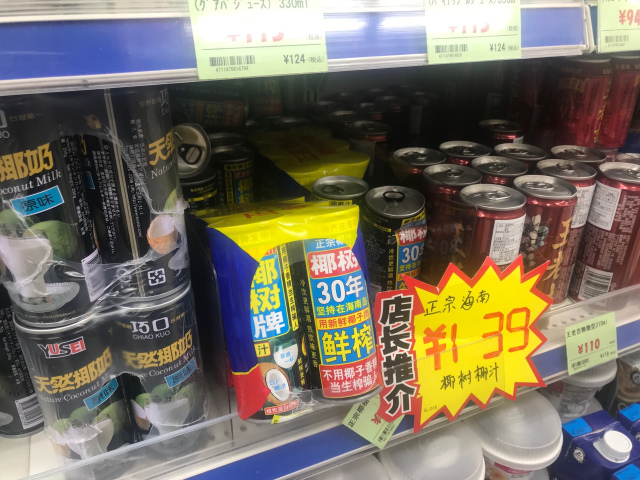
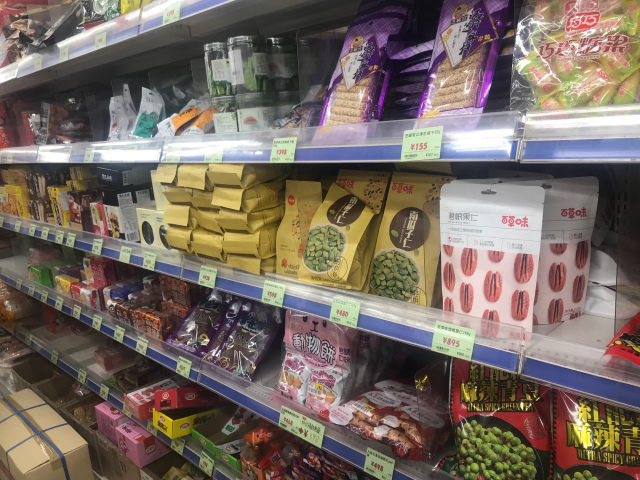
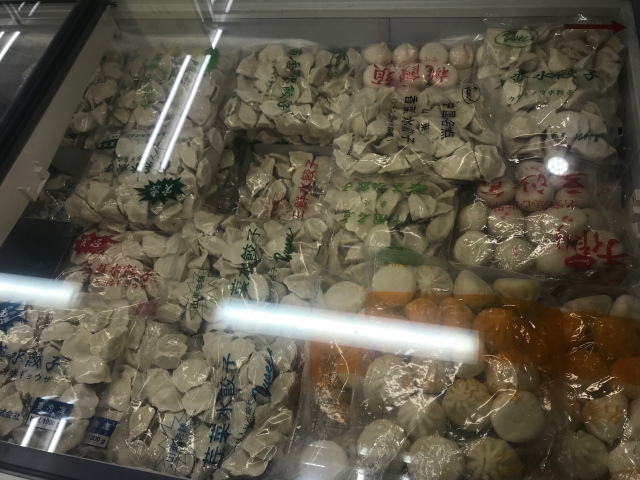
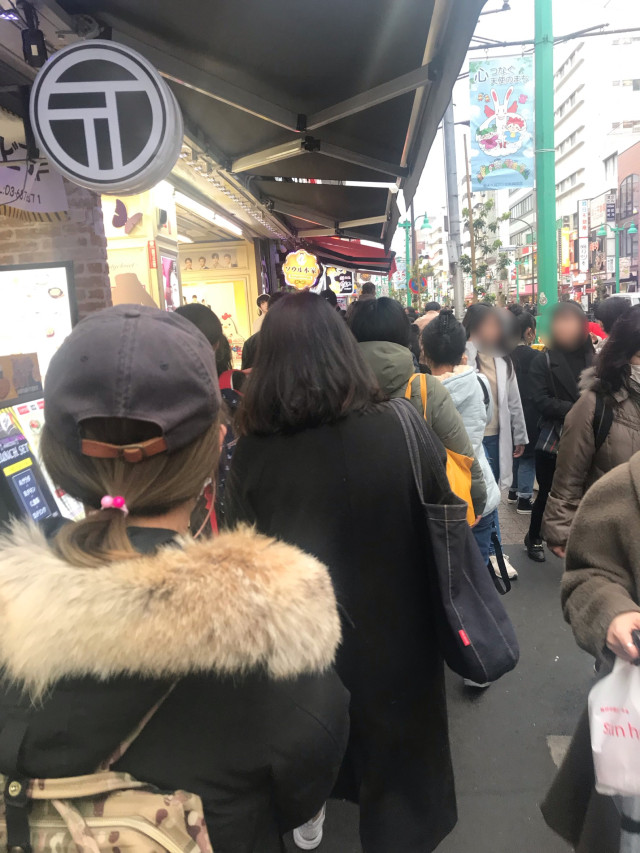
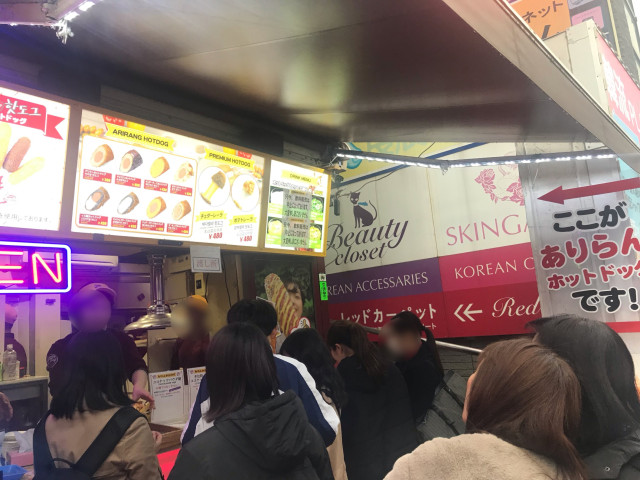
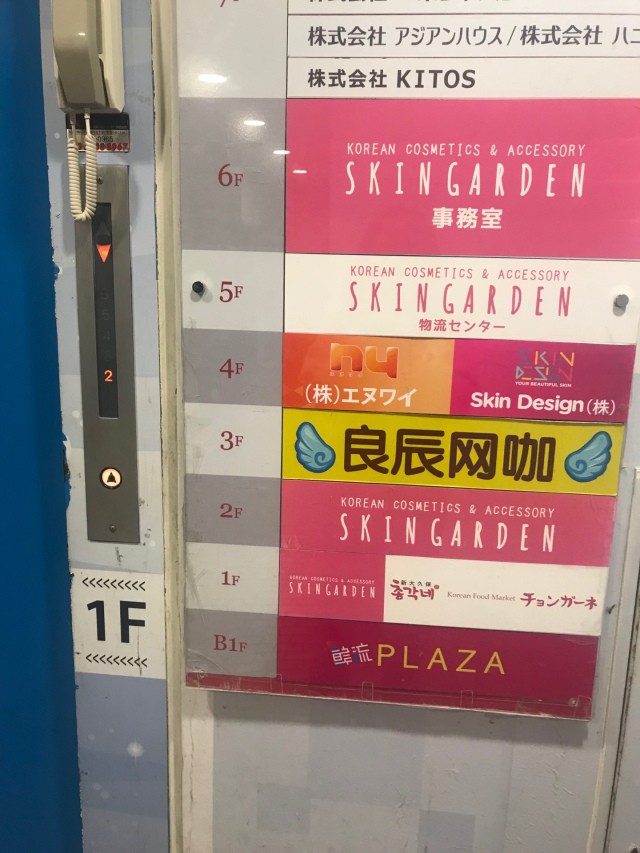
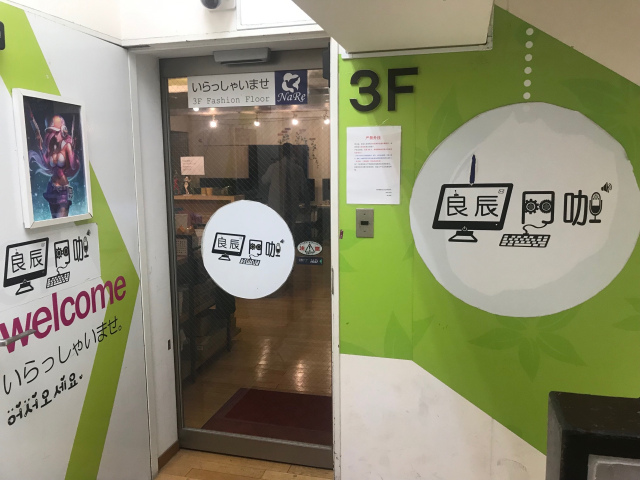
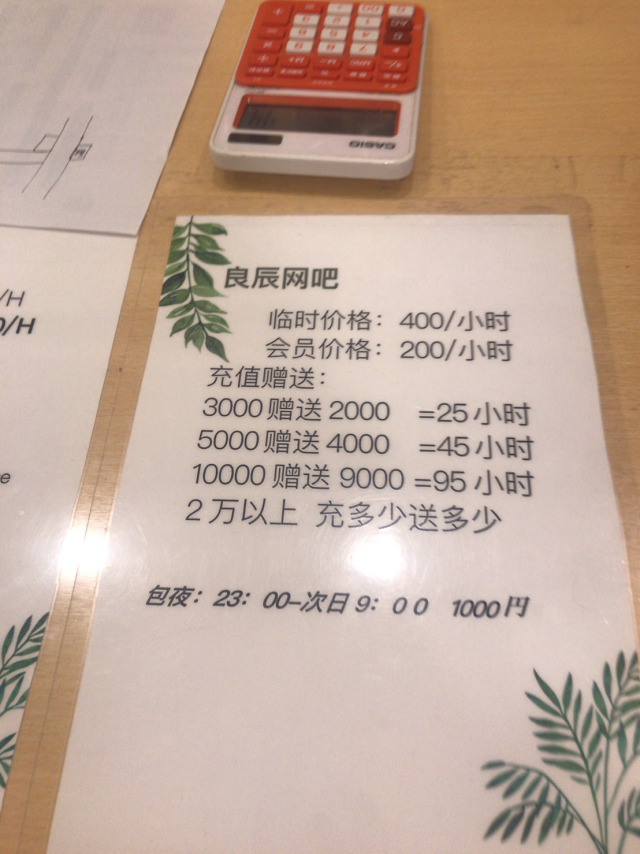
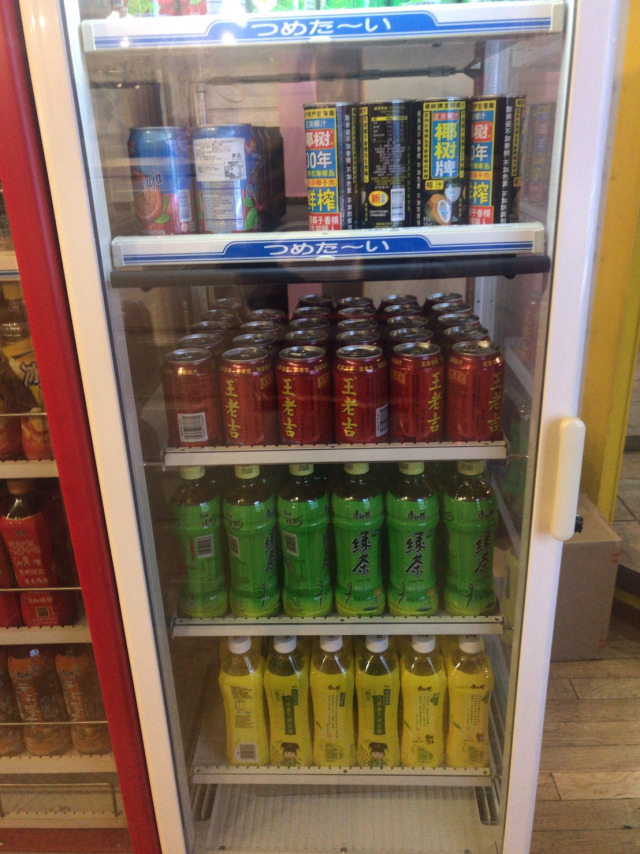

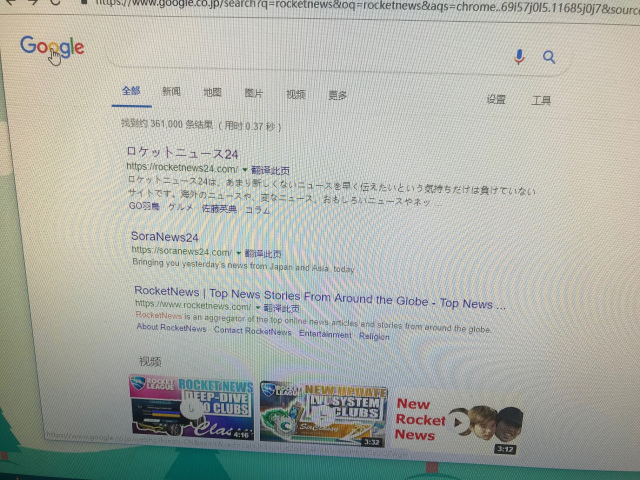
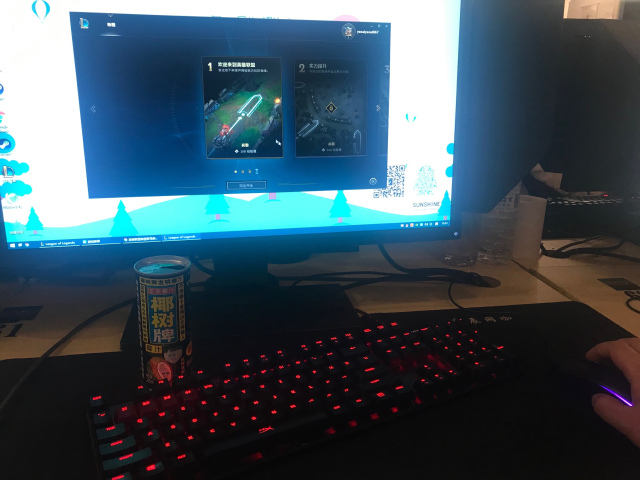
 We hung out at one of Tokyo’s most popular pickup spots, drank our hearts out and met many men
We hung out at one of Tokyo’s most popular pickup spots, drank our hearts out and met many men Ramen and girls bar: Where you can talk to women who aren’t dressed like hosts or maids
Ramen and girls bar: Where you can talk to women who aren’t dressed like hosts or maids Vegans rejoice! Japanese vegan fair celebrates meatless meat, organic cola, vegan pet food
Vegans rejoice! Japanese vegan fair celebrates meatless meat, organic cola, vegan pet food Japan’s big eats just got even bigger at this little-known cafe
Japan’s big eats just got even bigger at this little-known cafe We rode 11 hours on a sleeper train from Shanghai to Shenzhen and learned a valuable lesson
We rode 11 hours on a sleeper train from Shanghai to Shenzhen and learned a valuable lesson McDonald’s new Happy Meals offer up cute and practical Sanrio lifestyle goods
McDonald’s new Happy Meals offer up cute and practical Sanrio lifestyle goods Studio Ghibli glasses cases let anime characters keep an eye on your spectacles
Studio Ghibli glasses cases let anime characters keep an eye on your spectacles All-you-can-drink Starbucks and amazing views part of Tokyo’s new 170 meter-high sky lounge
All-you-can-drink Starbucks and amazing views part of Tokyo’s new 170 meter-high sky lounge Super Nintendo World expansion gets delayed for several months at Universal Studios Japan
Super Nintendo World expansion gets delayed for several months at Universal Studios Japan Studio Ghibli releases new action figures featuring Nausicaä of the Valley of the Wind characters
Studio Ghibli releases new action figures featuring Nausicaä of the Valley of the Wind characters McDonald’s Japan releases a pancake pie for new retro kissaten coffeeshop series
McDonald’s Japan releases a pancake pie for new retro kissaten coffeeshop series Kyoto’s 100 Demons yokai monster parade returns!
Kyoto’s 100 Demons yokai monster parade returns! We try out “Chan Ramen”, an underground type of ramen popular in the ramen community
We try out “Chan Ramen”, an underground type of ramen popular in the ramen community More foreign tourists than ever before in history visited Japan last month
More foreign tourists than ever before in history visited Japan last month Completely unmanned 24-hours clothing store found in Tokyo
Completely unmanned 24-hours clothing store found in Tokyo Disney princesses get official manga makeovers for Manga Princess Cafe opening in Tokyo
Disney princesses get official manga makeovers for Manga Princess Cafe opening in Tokyo Starbucks reopens at Shibuya Scramble Crossing with new look and design concept
Starbucks reopens at Shibuya Scramble Crossing with new look and design concept Beautiful new Final Fantasy T-shirt collection on the way from Uniqlo【Photos】
Beautiful new Final Fantasy T-shirt collection on the way from Uniqlo【Photos】 Is the new Shinkansen Train Desk ticket worth it?
Is the new Shinkansen Train Desk ticket worth it? Foreign English teachers in Japan pick their favorite Japanese-language phrases【Survey】
Foreign English teachers in Japan pick their favorite Japanese-language phrases【Survey】 Beautiful Sailor Moon manhole cover coasters being given out for free by Tokyo tourist center
Beautiful Sailor Moon manhole cover coasters being given out for free by Tokyo tourist center Studio Ghibli releases Kiki’s Delivery Service chocolate cake pouches in Japan
Studio Ghibli releases Kiki’s Delivery Service chocolate cake pouches in Japan Japan’s bone-breaking and record-breaking roller coaster is permanently shutting down
Japan’s bone-breaking and record-breaking roller coaster is permanently shutting down New definition of “Japanese whiskey” goes into effect to prevent fakes from fooling overseas buyers
New definition of “Japanese whiskey” goes into effect to prevent fakes from fooling overseas buyers Our Japanese reporter visits Costco in the U.S., finds super American and very Japanese things
Our Japanese reporter visits Costco in the U.S., finds super American and very Japanese things Studio Ghibli unveils Mother’s Day gift set that captures the love in My Neighbour Totoro
Studio Ghibli unveils Mother’s Day gift set that captures the love in My Neighbour Totoro Domino’s Japan now sells…pizza ears?
Domino’s Japan now sells…pizza ears? New Japanese KitKat flavour stars Sanrio characters, including Hello Kitty
New Japanese KitKat flavour stars Sanrio characters, including Hello Kitty One of Tokyo’s most famous meeting-spot landmarks is closing for good
One of Tokyo’s most famous meeting-spot landmarks is closing for good Kyoto creates new for-tourist buses to address overtourism with higher prices, faster rides
Kyoto creates new for-tourist buses to address overtourism with higher prices, faster rides Sales of Japan’s most convenient train ticket/shopping payment cards suspended indefinitely
Sales of Japan’s most convenient train ticket/shopping payment cards suspended indefinitely Sold-out Studio Ghibli desktop humidifiers are back so Totoro can help you through the dry season
Sold-out Studio Ghibli desktop humidifiers are back so Totoro can help you through the dry season Japanese government to make first change to romanization spelling rules since the 1950s
Japanese government to make first change to romanization spelling rules since the 1950s Ghibli founders Toshio Suzuki and Hayao Miyazaki contribute to Japanese whisky Totoro label design
Ghibli founders Toshio Suzuki and Hayao Miyazaki contribute to Japanese whisky Totoro label design Doraemon found buried at sea as scene from 1993 anime becomes real life【Photos】
Doraemon found buried at sea as scene from 1993 anime becomes real life【Photos】 Tokyo’s most famous Starbucks is closed
Tokyo’s most famous Starbucks is closed One Piece characters’ nationalities revealed, but fans have mixed opinions
One Piece characters’ nationalities revealed, but fans have mixed opinions We asked a Uniqlo employee what four things we should buy and their suggestions didn’t disappoint
We asked a Uniqlo employee what four things we should buy and their suggestions didn’t disappoint Princesses, fruits, and blacksmiths: Study reveals the 30 most unusual family names in Japan
Princesses, fruits, and blacksmiths: Study reveals the 30 most unusual family names in Japan We joined the 10,000 otaku who recently congregated in Madrid for Japan Weekend
We joined the 10,000 otaku who recently congregated in Madrid for Japan Weekend We prepared our own delicious amberjack sashimi and realized how much money it saved us【Pics】
We prepared our own delicious amberjack sashimi and realized how much money it saved us【Pics】 We try a rotating sushi restaurant in New Delhi, are surprised to find no rotating sushi
We try a rotating sushi restaurant in New Delhi, are surprised to find no rotating sushi “Hey Singaporean taxi driver! Take us to the best restaurant in Singapore!”
“Hey Singaporean taxi driver! Take us to the best restaurant in Singapore!” Our Japanese reporter visits Czechia’s famous beer spas and boozily bathes in a bath of beer
Our Japanese reporter visits Czechia’s famous beer spas and boozily bathes in a bath of beer Do people in Osaka really eat crunchy fried noodles with curry? We ask a local, then try it out
Do people in Osaka really eat crunchy fried noodles with curry? We ask a local, then try it out We get our hands on a coveted Yodobashi lucky bag, this time the beauty and health gadget box
We get our hands on a coveted Yodobashi lucky bag, this time the beauty and health gadget box Cook up an easy campsite feast inside your home with the “Ramen Cooker”
Cook up an easy campsite feast inside your home with the “Ramen Cooker” We stumbled upon “Pudding Street” in Hanoi, so of course we had to investigate
We stumbled upon “Pudding Street” in Hanoi, so of course we had to investigate Thanko’s lucky bag for 2023 brings the heat in more ways than one
Thanko’s lucky bag for 2023 brings the heat in more ways than one We take a cat yoga class at a Japanese rescue cat cafe
We take a cat yoga class at a Japanese rescue cat cafe Hey, Croatian taxi driver! Take us to the restaurant with the best štrukli in Zagreb
Hey, Croatian taxi driver! Take us to the restaurant with the best štrukli in Zagreb We try Starbucks Japan’s new sand dunes Frappuccino in Tottori
We try Starbucks Japan’s new sand dunes Frappuccino in Tottori We went out of our comfort zone and tried barbecued camel meat at a market in Morocco
We went out of our comfort zone and tried barbecued camel meat at a market in Morocco New Year lucky bag from makeup giant Shu Uemura may disappoint makeup buffs but thrill otaku
New Year lucky bag from makeup giant Shu Uemura may disappoint makeup buffs but thrill otaku
Leave a Reply